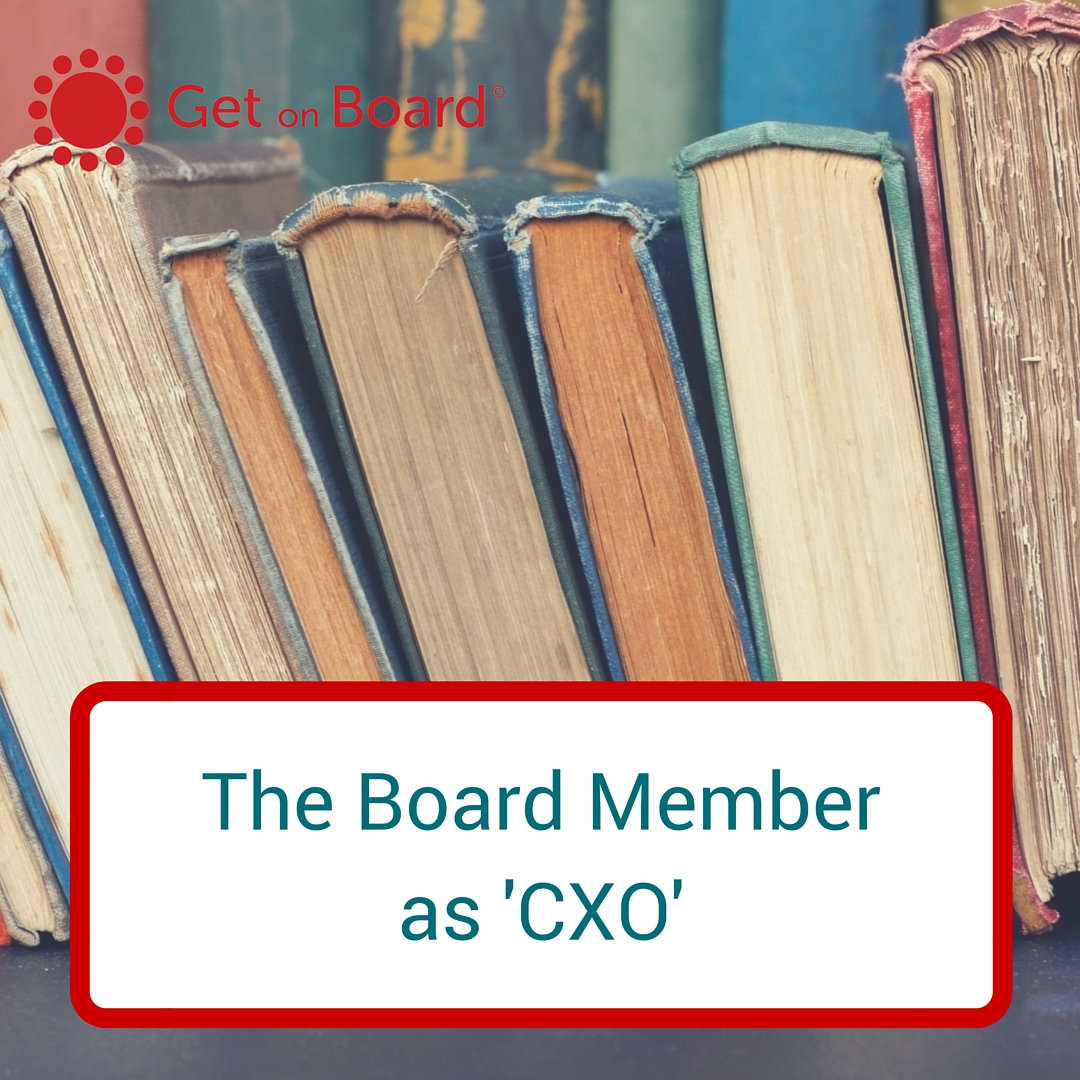The Board Member as CXO

I was sitting at the CFO Symposium in Adelaide earlier this week and one of the sessions really got me thinking. The speaker was talking about how they saw the role of the CFO changing and what CFOs now have to do to be successful in their role and of value to the business. Pretty straightforward stuff.
The thing that really got my mind ticking over was that a lot of what the speaker was saying correlated with how I see the role of a board member. Particularly in smaller organisations, not for profits, and charities.
Stick with me here. I’m not saying that we all need to be CFOs to be successful board members. Simply, as a company director, it is up to you to increase your knowledge and skills across all areas on business. As I like to say, you need to know a little about a lot. Adopt a CXO mindset – that is a Chief X Officer, where x = everything (e.g. CEO – Chief Executive Officer, CFO – Chief Finance Officer, CISO – Chief Information Security Officer, CTo – Chief Technology Officer, CHRO – Chief Human Resources Officer, CMO – Chief Marketing Officer, on so on)!
The theme for the symposium was focused on change and technology. Here are some main ideas from the speakers that are relevant for board members:
- Develop organisational capability and leadership, particularly to meet the future needs of the business
- Ensure alignment across purpose, culture, and strategic intent: is everyone pulling in the same direction?
- Maintain financial nous; not just individually, but as a board and organisation
- Be a technology evangelist and a change champion: how will the business adapt to a future world?
- Look towards the future: where is the next disruption coming from? Consider Horizon Planning.
- Understand that digital cannot be secondary in your strategy
- Be agile: Make fast decisions, be lean, and know your customers. Balance nimble responses with strategic intent (i.e. don’t chase the shiny object).
- Distil what is happening in your marketplace – and beyond – down to an organisation level
- Ask if your current business model will last the next 5 – 10 years. If it doesn’t, what are you doing about it?
- Consider if Australia is too small of a marketplace for the business (will investment in technology help you access a broader audience)
There was also a discussion around priorities for boards in 2016, with four main themes standing out:
- Skill set: ensure the board has a mix of skills that aligns with the strategic needs of the business
- Forward-looking: keep your eyes out on the horizon and apply what you’re seeing to the business
- Survival: getting through the next year without falling over
- Compliance: ensuring you meet all of the statutory obligations
Put simply, as a board member you need to be across a lot of things, aware of what’s happening in business now and into the future, and bring all of that information back to your board and organisation in a meaningful way. In NFPs, charities, and smaller organisations, the burden for expertise and contribution from directors is higher than it is for larger businesses.
For ideas on how you can stay up to date without the need to constantly be reading, check out this post on How to be an Effective Board Member.
Subscribe to Receive Access to Articles, Resources, and Tools to Support Your Board Goals.
